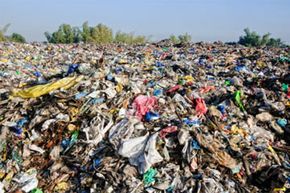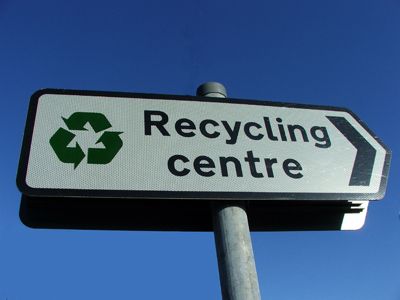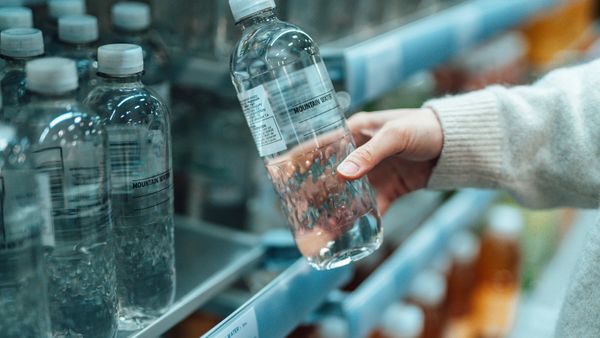Recycling requires a lot of work. Consumers may have to wash, sort and transport recyclable material to a collection point. Even if people are fortunate enough to have a curbside service that picks up any and all recyclable material, the work doesn't stop there. The recycling center also has a lot of work to do. It may have to clean and separate materials. It may not be equipped to recycle all types of material. It takes time, energy and money to make recycling work. So are some things better off in landfills?
That depends upon how you look at the problem -- not all recycling centers are equal and the environmental issues are complex. How much energy was needed to collect and break down the material? How much energy was needed to change that material into something new? How much energy was needed to transport the new materials to their ultimate destination? And is that amount of energy less than it would have taken to fashion products out of virgin materials? If not, then you may be causing more environmental harm by recycling something than by just tossing it in the garbage.
Advertisement
You can ask the same questions about the financial cost of the process. In some regions, recycling is more expensive than shipping garbage to a landfill. On the surface, it might seem like asking how much something costs financially is missing the point. But what if the money we spend on recycling could be used in a different, more efficient way to help the environment?
Then you have to consider what the recyclable material will eventually become. Will the materials made from recyclable products also be recyclable? Aluminum cans are great candidates for recycling -- the process is safe, efficient and we can make new cans from the recycled aluminum. But PET category plastic bottles are a different story. The plastic from PET bottles gets recycled into goods like textiles, which aren't necessarily recyclable. So recycling PET bottles delays plastic from going to the landfill but may not prevent it from ending up there eventually.
Or consider glass. Ground-up glass is essentially sand, which isn't harmful to the environment. Collecting, transporting and recycling glass can consume more energy than producing new glass containers. Reusing glass containers rather than throwing them out is an even better idea.
Some materials can't be recycled at all. Paper that's been contaminated with food is an example. Any paper with a layer of plastic or glue also shouldn't go in a recycle container. These items can cause damage to recycling centers if they actually get that far. In that sense, they're better off in a landfill if it's your only other choice for disposal.
If we invest in technology like plasma waste converters, the problems of recycling versus throwing garbage away could become simpler. Plasma waste converters use incredible amounts of energy to break down garbage into either an obsidian-like substance called slag or into syngas. Syngas can be used as a fuel, meaning we could potentially mine landfills for an energy source. But only a few plasma waste converter facilities exist -- at most landfills, the garbage you toss in just sits there.
It's difficult to argue that we should send more material to landfills, even if some materials can't be recycled in an efficient or economically-viable way. The best choice is to reduce consumption and reuse as much as you can. That eliminates the need to produce more. Hopefully, we'll find new ways to recycle problematic materials or switch to products that don't have the same limitations.
Learn more about recycling through the links on the next page.
Advertisement


